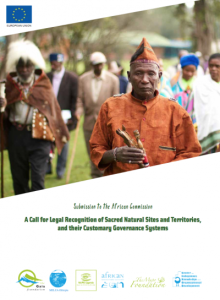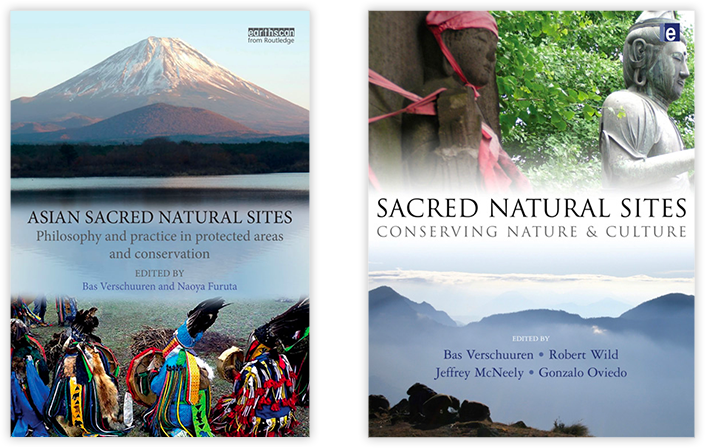
“呼吁自然圣地和地区的司法认定, 及其习惯治理体系” 由盖亚基金会和非洲生物多样性网络发布. 该报告提供了非洲人权和人民’ 具有与非洲原始传统核心要素相关的有说服力和实质性论据的权利,并呼吁对此事采取果断的政策和立法反应. 阅读完整报告 或访问网站 盖亚基金会.
该报告基于一份声明, 由来自六个非洲国家的托管社区提供,并提供一系列法律和政策支持 保管人’ 陈述, 取自《非洲宪章》以及国际法和国内法.
自然圣地是生命之源. 自然圣地是我们来自哪里, 生命的心脏. 他们是我们的根,我们的启示. 没有我们的神圣,我们就无法生存 自然遗址,我们有责任保护它们. 来源: 保管人’ 声明.
它提醒我们,《非洲宪章》要求成员国尊重和维护多元法律体系, 并建议非洲国家应承认先验的法律制度,作为其对自豪的非洲身份的承诺的一部分, 更好地走一条维护非洲大陆完整性和遗产的发展道路.
报告要点:
 自然圣地在保护生物多样性方面发挥着关键作用, 对于增强气候变化抵御能力至关重要.
自然圣地在保护生物多样性方面发挥着关键作用, 对于增强气候变化抵御能力至关重要.- 托管社区, 维持习惯治理体系的自然圣地在保护非洲传统价值观方面发挥着至关重要的作用.
- 自然圣地是习惯治理体系的基石,需要法律保护.
- 多元法律体系包括习惯治理体系,是尊重非洲本质的重要组成部分,
- 自然圣地和领土应被视为采矿和其他破坏性或采掘活动的禁区.
该报告还呼吁承认并保护自然圣地免受任何形式的破坏 – 包括采矿和征地 – 作为实现非洲人民的先决条件’ 《非洲宪章》规定的不可剥夺的权利, 包括持有和践行传统道德的权利, 价值观和文化. 全球先例的讨论, 非洲的多元法律体系和贝宁的案例研究, 埃塞俄比亚和肯尼亚也包括在内.
来源: 改编自 盖亚基金会.






